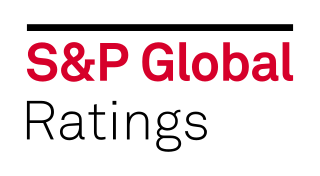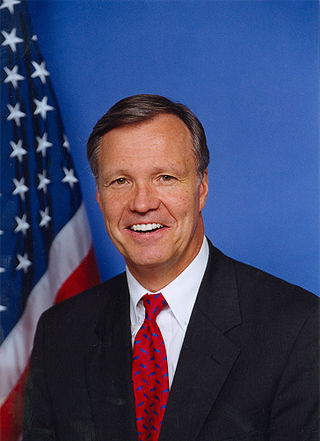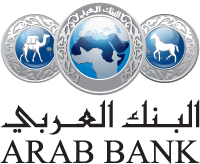Related Research Articles

The International Finance Corporation (IFC) is an international financial institution that offers investment, advisory, and asset-management services to encourage private-sector development in less developed countries. The IFC is a member of the World Bank Group and is headquartered in Washington, D.C. in the United States.

In finance, a high-yield bond is a bond that is rated below investment grade by credit rating agencies. These bonds have a higher risk of default or other adverse credit events, but offer higher yields than investment-grade bonds in order to compensate for the increased risk.

S&P Global Ratings is an American credit rating agency (CRA) and a division of S&P Global that publishes financial research and analysis on stocks, bonds, and commodities. S&P is considered the largest of the Big Three credit-rating agencies, which also include Moody's Investors Service and Fitch Ratings. Its head office is located on 55 Water Street in Lower Manhattan, New York City.

A credit rating agency is a company that assigns credit ratings, which rate a debtor's ability to pay back debt by making timely principal and interest payments and the likelihood of default. An agency may rate the creditworthiness of issuers of debt obligations, of debt instruments, and in some cases, of the servicers of the underlying debt, but not of individual consumers.

Charles Christopher Cox is an American attorney and politician who served as chair of the U.S. Securities and Exchange Commission, a 17-year Republican member of the United States House of Representatives, and member of the White House staff in the Reagan Administration. Prior to his Washington service he was a practicing attorney, teacher, and entrepreneur. Following his retirement from government in 2009, he returned to law practice and currently serves as a director, trustee, and advisor to several for-profit and nonprofit organizations.

Temasek Holdings (Private) Limited, or simply Temasek, is a Singaporean state holding company owned by the Government of Singapore. Incorporated on 25 June 1974, its net portfolio is US$287 billion as of 2022, with S$37 billion divested and S$61 billion invested during the year.

S&P Global Inc. is an American publicly traded corporation headquartered in Manhattan, New York City. Its primary areas of business are financial information and analytics. It is the parent company of S&P Global Ratings, S&P Global Market Intelligence, S&P Global Mobility, S&P Global Engineering Solutions, S&P Global Sustainable1, and S&P Global Commodity Insights, CRISIL, and is the majority owner of the S&P Dow Jones Indices joint venture. "S&P" is a shortening of "Standard and Poor's".

Moody's Corporation, often referred to as Moody's, is an American business and financial services company. It is the holding company for Moody's Investors Service (MIS), an American credit rating agency, and Moody's Analytics (MA), an American provider of financial analysis software and services.

Drexel Burnham Lambert was an American multinational investment bank that was forced into bankruptcy in 1990 due to its involvement in illegal activities in the junk bond market, driven by senior executive Michael Milken. At its height, it was a Bulge Bracket bank, as the fifth-largest investment bank in the United States.
Moody's Investors Service, often referred to as Moody's, is the bond credit rating business of Moody's Corporation, representing the company's traditional line of business and its historical name. Moody's Investors Service provides international financial research on bonds issued by commercial and government entities. Moody's, along with Standard & Poor's and Fitch Group, is considered one of the Big Three credit rating agencies. It is also included in the Fortune 500 list of 2021.

Arab Bank is one of the largest financial institutions in the Middle East, founded in 1930 in Jerusalem, Mandatory Palestine, as the first private sector financial institution in the Arab world. Headquartered today in Amman, Jordan, it serves clients in more than 600 branches spanning five continents. Arab Bank is a publicly held shareholding company listed on the Amman Stock Exchange.
Justin Aldrich Rockefeller is an American impact investor and financial technology professional. He is a great-great grandson of John D. Rockefeller.

MBIA Inc. is an American financial services company. It was founded in 1973 as the Municipal Bond Insurance Association. It is headquartered in Purchase, New York, and as of January 1, 2015 had approximately 180 employees. MBIA is the largest bond insurer.
Education Management Corporation (EDMC) was a Pittsburgh, Pennsylvania-based operator of for-profit post-secondary educational institutions in the United States and Canada. The company was founded in 1962. At its peak in 2011, Education Management Corporation operated 110 schools through its higher education divisions: Argosy University, The Art Institutes, Brown Mackie College, and South University, and enrolled 158,300 students.
Credit rating agencies (CRAs)—firms which rate debt instruments/securities according to the debtor's ability to pay lenders back—played a significant role at various stages in the American subprime mortgage crisis of 2007–2008 that led to the great recession of 2008–2009. The new, complex securities of "structured finance" used to finance subprime mortgages could not have been sold without ratings by the "Big Three" rating agencies—Moody's Investors Service, Standard & Poor's, and Fitch Ratings. A large section of the debt securities market—many money markets and pension funds—were restricted in their bylaws to holding only the safest securities—i.e. securities the rating agencies designated "triple-A". The pools of debt the agencies gave their highest ratings to included over three trillion dollars of loans to homebuyers with bad credit and undocumented incomes through 2007. Hundreds of billions of dollars' worth of these triple-A securities were downgraded to "junk" status by 2010, and the writedowns and losses came to over half a trillion dollars. This led "to the collapse or disappearance" in 2008–09 of three major investment banks, and the federal governments buying of $700 billion of bad debt from distressed financial institutions.
The Milken Institute is an independent economic think tank based in Santa Monica, California with offices in Washington, DC, New York, Miami, London, Abu Dhabi, and Singapore. It publishes research and hosts conferences that apply market-based principles and financial innovations to social issues in the US and internationally. The institute is a 501(c)(3) nonprofit organization and presents itself as nonpartisan and non-ideological.
Eurasian Bank JSC is the ninth largest lender in Kazakhstan, headquartered in Almaty. It was founded in 1994 as a closed joint-stock company, and reregistered in 2003 as a joint stock company due to joint stock company law changes. The Bank is owned 100% by Eurasian Financial Company JSCwhich is 100% owned by three equal shareholders: Alexander Mashkevich, Alijan Ibragimov, Patokh Shodiyev

Moody's Analytics is a subsidiary of Moody's Corporation established in 2007 to focus on non-rating activities, separate from Moody's Investors Service. It provides economic research regarding risk, performance and financial modeling, as well as consulting, training and software services. Moody's Analytics is composed of divisions such as Moody's KMV, Moody's Economy.com, Moody's Wall Street Analytics, the Institute of Risk Standards and Qualifications, and Canadian Securities Institute Global Education Inc.
The Big Three credit rating agencies are S&P Global Ratings (S&P), Moody's, and Fitch Group. S&P and Moody's are based in the US, while Fitch is dual-headquartered in New York City and London, and is controlled by Hearst. As of 2013 they hold a collective global market share of "roughly 95 percent" with Moody's and Standard & Poor's having approximately 40% each, and Fitch around 15%.
Rapid Ratings International Inc. is a SaaS technology firm that provides information on the financial health of public and private companies around the world. The company’s analytics system allegedly provides insights into third-party partners, suppliers, vendors, and customers. The company's platform provides Financial Health Ratings and detailed reporting to help businesses mitigate financial risk. Additionally, Rapid Ratings offers a service to obtain financial statements from private company third parties to increase transparency and improve visibility.
References
- ↑ "Raymond W. McDaniel, Jr". Martindale. Retrieved March 24, 2023.
- ↑ Moody's Corporation Information
- ↑ United States Public Records, 1970-2009 (New York, 1988-2000)
- 1 2 3 4 5 6 "Management Team". Moody's Corporation. 2011. Archived from the original on 8 September 2012. Retrieved 8 August 2012.
- ↑ "Moody's Mega Math Challenge" (PDF). Leaders. April 2008. Retrieved 15 August 2012.
- 1 2 3 "Wiley announces election of Raymond W. McDaniel, Jr., to its Board of Directors" (Press release). Wiley. 21 September 2005. Retrieved 23 September 2011.
- ↑ "Raymond W. McDaniel". Forbes.com. 2011. Archived from the original on October 7, 2008. Retrieved 19 September 2011.
- ↑ "2012 Speaker's Biography: Raymond McDaniel Jr". milkeninstitute.org. Milken Institute. Archived from the original on 26 June 2012. Retrieved 8 August 2012.
- ↑ "Moody's, S&P caved to mortgage pressure by banks". Bloomberg. 14 April 2011. Retrieved 23 September 2011.
- ↑ David Segal (3 June 2010). "Questions For Moody's And Buffett". The New York Times. Retrieved 23 September 2011.
- 1 2 David Segal (11 May 2010). "After S.E.C. Suit Warning, Traders Flee Moody's Shares". The New York Times. Retrieved 23 September 2011.
- ↑ Kevin G. Hall (28 July 2010). "Timing of stock sales by Moody's chief raises questions". McClatchy Newspapers. Retrieved 23 September 2011.
- ↑ Zeke Faux (22 March 2012). "Moody's Says Governments Should Create New Ratings Firm". Bloomberg. Retrieved 8 August 2012.
- ↑ "Live from the Global Conference: "Financial Regulatory Reform: How Does It Help, How Does It Hurt?"". smartblogs.com. Smart Blogs. Retrieved 29 August 2012.
- ↑ "Moody's CEO to Investors: Don't Rely on Ratings". CBS News. 7 June 2010. Retrieved 29 August 2012.
- ↑ Mike Sorohan. "MBA: Increase Transparency in Credit Rating Agencies". MBA NewsLink. Retrieved 29 August 2012.
- ↑ "A Leader in the Campaign for Economic and Financial Literacy". NCEE Quarterly eNewsletter. 23 March 2006. Retrieved 23 September 2011.
- ↑ "New Members" (PDF). The Corporate Philanthropist. National Council on Economic Education. Winter 2007. Retrieved 23 September 2011.
- ↑ "2011 Speaker's Biography: Raymond McDaniel Jr". milkeninstitute.org. Milken Institute. Retrieved 8 August 2012.
- ↑ Blodgett, Lucy (30 April 2012). "Milken Global Conference 2012: Live Updates From The 15th Annual Milken Global Conference". Huffington Post. Retrieved 15 August 2012.